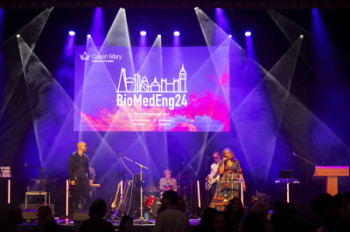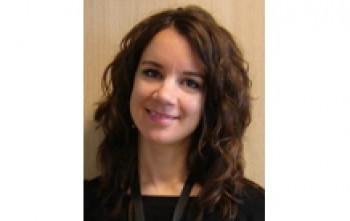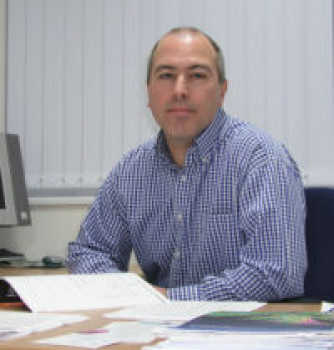Past Events
September 2024 | |
| Thu 5 - Fri 6 Sep 2024 |  Queen Mary hosts over 400 delegates at BioMedEng24 Queen Mary hosts over 400 delegates at BioMedEng24On Thursday 5 and Friday 6 September, Queen Mary University of London will host BioMedEng24, the 16th annual conference bringing together experts from across the Biomedical Engineering industry in the UK and internationally. This year, more than 430 delegates will attend and the programme will feature over 30 sessions and more than 240 poster presentations will be displayed. Conference highlights include Plenary Speaker Professor Dame Molly Stevens from the University of Oxford. The John... |
July 2024 | |
| Wed 10 Jul 2024 |  Seminar Series - Dr Elisa Migliorini (CEA, Grenoble, France) Seminar Series - Dr Elisa Migliorini (CEA, Grenoble, France)Biomimetic materials presenting extracellular matrix components to study bone morphogenetic protein bioactivity The extracellular matrix (ECM) is a complex 3D microenvironment around cells composed of structural and adhesion proteins, proteoglycans-carrying glycosaminoglycans (GAGs) that bind and release growth factors to cellular receptors. In particular, bone morphogenetic protein 2 (BMP2) is bound to GAGs on the ECM and cell surface. 3D biomaterials are a good approximation to the real in... |
February 2024 | |
| Wed 14 Feb 2024 |  SEMS Seminar Series: Professor Mike Turner, University of Manchester SEMS Seminar Series: Professor Mike Turner, University of ManchesterConjugated Polymers of Many Flavours - Short, Long and Round Applications in Imaging and Electronics Soluble organic semiconductors are attractive synthetic targets as they can be deposited from solution using low-cost processing routes to fabricate organic electronic devices such as light emitting diodes, photovoltaics and field effect transistors. Some of the major challenges for synthetic chemists are to make the syntheses of these materials more efficient, with lower levels of... |
October 2022 | |
| Wed 19 Oct 2022 |  Seminar Series: Dr Mark Kotter, Cambridge Seminar Series: Dr Mark Kotter, CambridgeRegenerative Medicine and Spinal Cord Injury: Dr Kotter is an academic neurosurgeon at the University of Cambridge specialising in spinal surgery. He graduated with distinction from the University of Graz, and obtained MPhil/PhD degrees studying neural regeneration at the University of Cambridge in the laboratory of Prof. Robin Franklin. He underwent neurosurgery training at the Medical University Vienna and the University of Cambridge and sub specialist training in complex spinal surgery... |
May 2022 | |
| Wed 4 May 2022 15:00 - 16:00 |  MoBioC 2022 Seminar Series: Prof. Lynne Regan (University of Edinburgh) MoBioC 2022 Seminar Series: Prof. Lynne Regan (University of Edinburgh)Engineering novel materials and surfaces using proteins Biological systems must function with exquisite specificity in a complex milieu. Although one can design proteins to adopt many structures, there are a number of examples where the structure and function of a natural protein is so unique that one cannot specify the requirements to recapitulate the desired activity. We therefore take the approach of co-opting natural proteins with distinctive physical properties and using them in... |
April 2022 | |
| Wed 13 Apr 2022 |  MoBioC 2022 Seminar Series: Prof. Carsten Werner (Leibniz Institute for Polymer Research) MoBioC 2022 Seminar Series: Prof. Carsten Werner (Leibniz Institute for Polymer Research)Cell-Instructive Polymer Hydrogels Based on Sulfated Glycosaminoglycans Glycosaminoglycans (GAGs) within extracellular matrices (ECM) control the presentation of soluble, cell-instructive signals. Incorporation of GAGs into engineered polymer networks can therefore provide a powerful and versatile means of directing cell fate. To systematically explore the related options, we have established a rational design strategy for ECM-inspired hydrogels based on multi-armed poly(ethylene glycol),... |
| Wed 6 Apr 2022 |  MoBioC 2022 Seminar Series: Prof. Steve Armes (University of Sheffield) MoBioC 2022 Seminar Series: Prof. Steve Armes (University of Sheffield)Bespoke block copolymer nano-objects via polymerisation-induced self-assembly (PISA) in aqueous media Over the past decade or so, polymerisation-induced self-assembly (PISA) has become widely recognised as a powerful and versatile platform technology for the rational synthesis of a wide range of block copolymer nano-objects. In this lecture, I will focus on PISA syntheses in aqueous media, with particular emphasis being paid to (i) readily sterilisable biocompatible worm gels, (ii) spherical... |
March 2022 | |
| Wed 2 Mar 2022 |  MoBioC 2022 Seminar Series: Prof. Thomas Hermans (Universite de Strasbourg) MoBioC 2022 Seminar Series: Prof. Thomas Hermans (Universite de Strasbourg)Controlling self-assembly by chemical fuels Looking at nature, we see that living materials with biological functionality, such as the actin or microtubule (MT) cytoskeletal network, achieve dynamics as well as supramolecular structures with the same protein building blocks. In other words, the components can assemble, but also react (i.e., tubulin is also an enzyme that hydrolyses guanosine triphosphate GTP), which in turn affects the assemblies. In this way, living systems use chemical... |
February 2022 | |
| Wed 16 Feb 2022 |  MoBioC 2022 Seminar Series: Dr Andela Saric (University College London) MoBioC 2022 Seminar Series: Dr Andela Saric (University College London)Feeling and producing mechanical forces by protein assemblies Responding to mechanical cues and producing mechanical forces is central to survival and adaptation of all organisms. To do so, cells often dynamically organise their cytoplasmic and extracellular proteins into functional nanoscale structures that sense and produce mechanical forces. Such processes are multi-scale in nature and driven far from thermodynamic equilibrium. Our group develops minimal coarse-grained computer models... |
| Wed 9 Feb 2022 15:00 - 16:00 |  MoBioC 2022 Seminar Series: Dr Claudia Contini (University College London) MoBioC 2022 Seminar Series: Dr Claudia Contini (University College London)Title: Artificial Cells: from Soft Matter to Cell-like Behaviours Abstract: My research involves the creation of artificial cell-like systems (protocells) from scratch by using synthetic or hybrid molecular building blocks, which are fully controllable by design and mimic the fundamental structure or mechanisms of natural cells. This multidisciplinary endeavour aims to create a broad range of products for functional applications and, at the same time, an increased understanding of... |
January 2022 | |
| Wed 26 Jan 2022 14:00 - 15:00 |  Seminar: MoBioC 2022 Seminar Series: Dr Helena W. Snyder (Cambridge Medical Technologies) Seminar: MoBioC 2022 Seminar Series: Dr Helena W. Snyder (Cambridge Medical Technologies)
Point-of-Care (POC) Biosensing and Targeted Nanoscale Drug Delivery Dr Helena W. Snyder, Vice President, Electrochemistry, Cambridge Medical Technologies POC sensing, and particularly wearable, continuous at-home monitoring has been garnering increased research and commercial interest in recent years after the commercial successes of several wearable glucose monitoring devices using microneedles. Dr. Helena Snyder is Vice President of Electrochemistry at Cambridge Medical Technologies,... |
| Wed 19 Jan 2022 15:00 - 16:00 |  Centre for Molecular Biochemical Engineering Launch Event / MoBioC 2022 Seminar Series: Prof. Cameron Alexander (University of Nottingham) Centre for Molecular Biochemical Engineering Launch Event / MoBioC 2022 Seminar Series: Prof. Cameron Alexander (University of Nottingham)The launch event for the seminar series of the Centre for Molecular Biochemical Engineering will be on Wednesday 19th January. On this occasion, Prof. Cameron Alexander will present work from his group at the interface between macromolecular design, the chemistry of precision therapeutics and their application to the biomedical field. "Polymers as Biomedical Probes and Therapeutics – from Oncology to Vaccines" Polymers have been widely used in medicine, from coatings for tablets through... |

